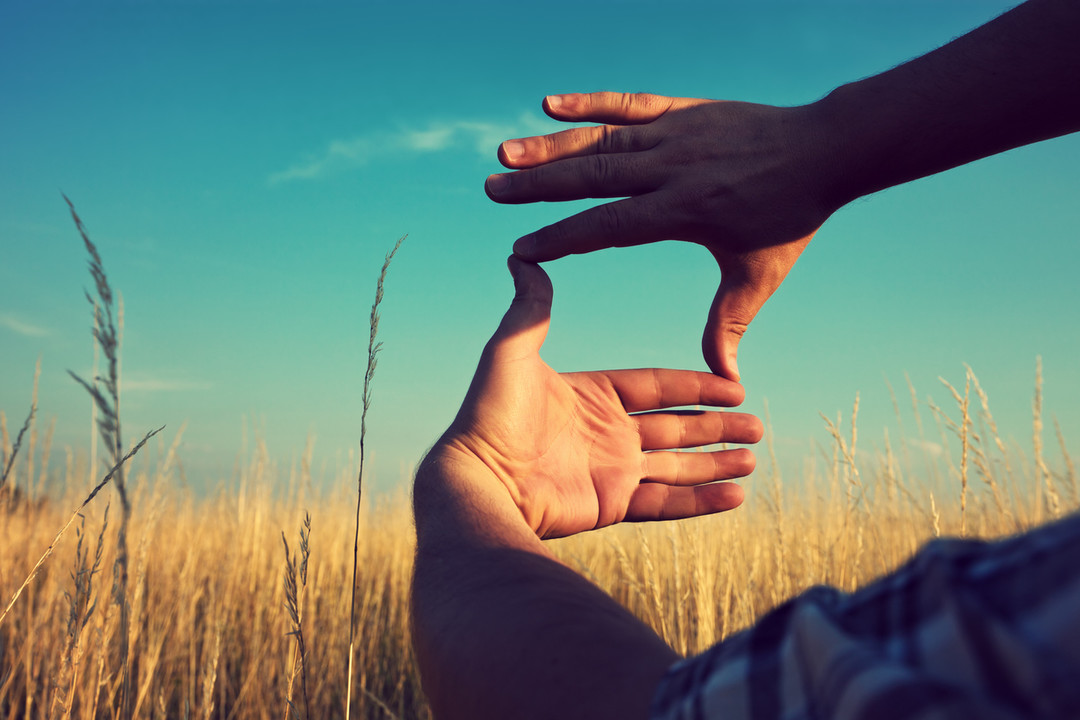
Project examples
Project example: Wind power in Türkiye
DEG – Deutsche Investitions- und Entwicklungsgesellschaft mbH – has granted a loan for the development and constructionof nine wind farms in western Türkiye with a total installed output of 750 MW to Enerjisa Enerji Üretim A.S. (Enerjisa). Enerjisa is indirectly owned, 50 % in each case, by the German E.ON SE and the Turkish Haci Ömer Sabanci Holding A.S., and has set itself the goal of increasing the share of renewable energies in the power plant portfolio to 61 % by 2026. The German Enercon Group is supplying in all more than 180 wind turbines for the wind farms. DEG, as a subsidiary of the German state-owned investment and development bank KfW, finances and advises privately owned companies which are active in developing countries and emerging markets.
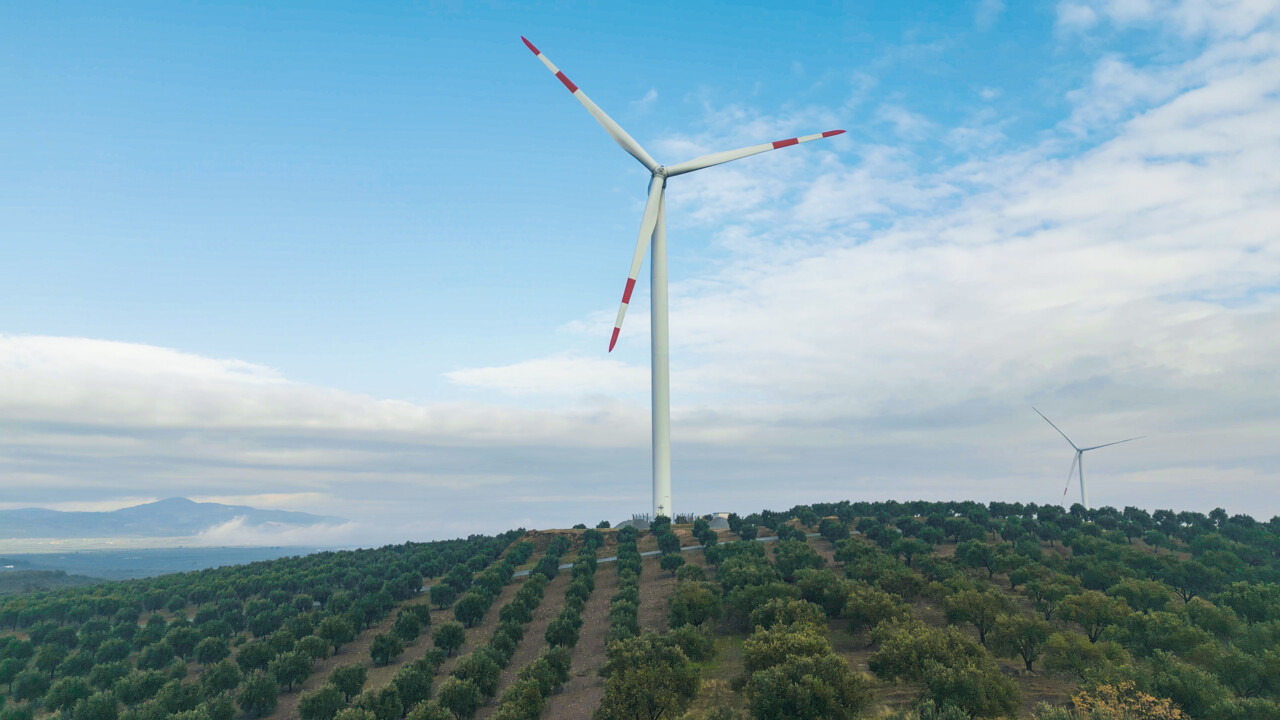
Picture rights: Enerjisa Enerji Üretim A. S., Istanbul
Project example: Production of agricultural machinery in Ukraine
TOV Düvelsdorf Ukraine is a 100 % subsidiary of Düvelsdorf Handelsgesellschaft mbH, which develops and markets machinery and equipment for agricultural uses, which are mainly manufactured by its Ukrainian subsidiary. In all, some 130 workers are currently employed by Düvelsdorf, 105 of them at Düvelsdorf Ukraine in the Chmelnyzkyj Oblast. Manufacture of the machinery at the site in Ukraine currently takes place on 12,000 m2 of factory floor space. Manufacture of the machinery has a relatively high degree of vertical integration. Production of metal sheet, piping and angle iron up to the final paint job of the finished product are almost entirely done independently. The products are stored temporarily at the company’s German facility, assembled and delivered from there to the customers.

Picture rights: Düvelsdorf Handelsgesellschaft mbH, Ottersberg
Project example: A production facility for glass mineral wool in Asia
Knauf Insulation is the specialist company for insulating materials in the Knauf Group, one of the leading manufacturers of construction materials worldwide. The launch of the business division Knauf Insulation came with its market entry in the USA in 1978. Since then the division has recorded continuous growth and, with a workforce of some 6,000 and 28 production facilities, generated turnover of 2.5 billion euros in more than 40 countries in 2022. Knauf Insulation produces energy-efficient and sustainable insulating materials made of glass wool, rock wool and wood wool. The construction of the production facility for glass mineral wool in Johor Bahru, Malaysia, began in 2018 and it was completed in 2021. Knauf Insulation Malaysia supplies the Asia-Pacific region with products and systems which save energy consumption in buildings, improve safety and increase living comfort. Something like 200 jobs were created through the erection of the production facility, which has a capacity of 60,000 tonnes a year. The investment volume was some 115 million euros. [1]
[1] An investment like this one would profit from particularly favourable guarantee conditions since the introduction of the climate and diversification strategy of the Investment Guarantee Scheme due to the excellent insulation characteristics of the products it makes and the location involved.

Picture rights: Knauf Insulation Holding GmbH, Iphofen
Project example: Manufacture of plastic components for commercial and construction vehicles in Bosnia-Herzegovina
The C.F. Maier Group with its head office in Königsbronn in Baden-Württemberg is among the leading manufacturers of components and systems made of fibre-reinforced plastics. With almost 60 years of experience and a broad spectrum of products and services, the company supplies customers all over the world and in the most diverse sectors. With the acquisition of Jaksche Kunststofftechnik and its modern production facility in Bosnia-Herzegovina in 2023, the company expanded its service portfolio even further and strengthened its position in a growing market. Through this strategic expansion with more than 120 employees, the C. F. Maier Group has intensified its involvement in plastics technology and further enhanced its palette of innovative manufacturing processes. The synergy effects between the companies enable an augmented development of advanced products and solutions from which first and foremost its customers profit.

Picture rights: MM Kunststoff Holding GmbH, Königsbronn
Project example: Building materials for Ukraine
The FIXIT GROUP is a leading European manufacturer of building materials and produces insulation systems, mortar, plaster and paints in 68 factories in 19 European countries. Acting as a group, they market products and solutions for residential buildings and non-residential construction, general construction and civil engineering, new construction and refurbishment.
The FIXIT GROUP has been active with a factory in Ukraine under the Kreisel brand for 20 years. Since 2018, this factory south of Kyiv has been constantly expanded with a view to sustainable production. It has extensive production facilities both for dry and wet building materials.
In order to better meet the requirements of its customers, especially in the western regions of Ukraine, and to serve the booming market for building materials in Ukraine, following a comprehensive planning phase the construction of a cutting-edge and high-performance production facility to the south of Lemberg (Lviv) was begun in August 2021. This factory, which will create some 60 new jobs and have state-of-the-art production standards, is intended to manufacture high-quality building materials made to European standards for customers in the whole of western Ukraine and, thanks to its modular expansion design, is well prepared for further strong growth in the Ukrainian market. The construction work became much more complicated due to the outbreak of war in February 2022 but has not been suspended.
After completion, the Kreisel Ukraine factory is planned to play a decisive role in the reconstruction and modernization of the country. Thanks to the investment guarantee from the Federal Government, which covers war and political risks, the transfer of fresh capital and thus the continuation of construction work on site is assured in spite of the uncertainties prevailing at the moment in Ukraine due to the war.
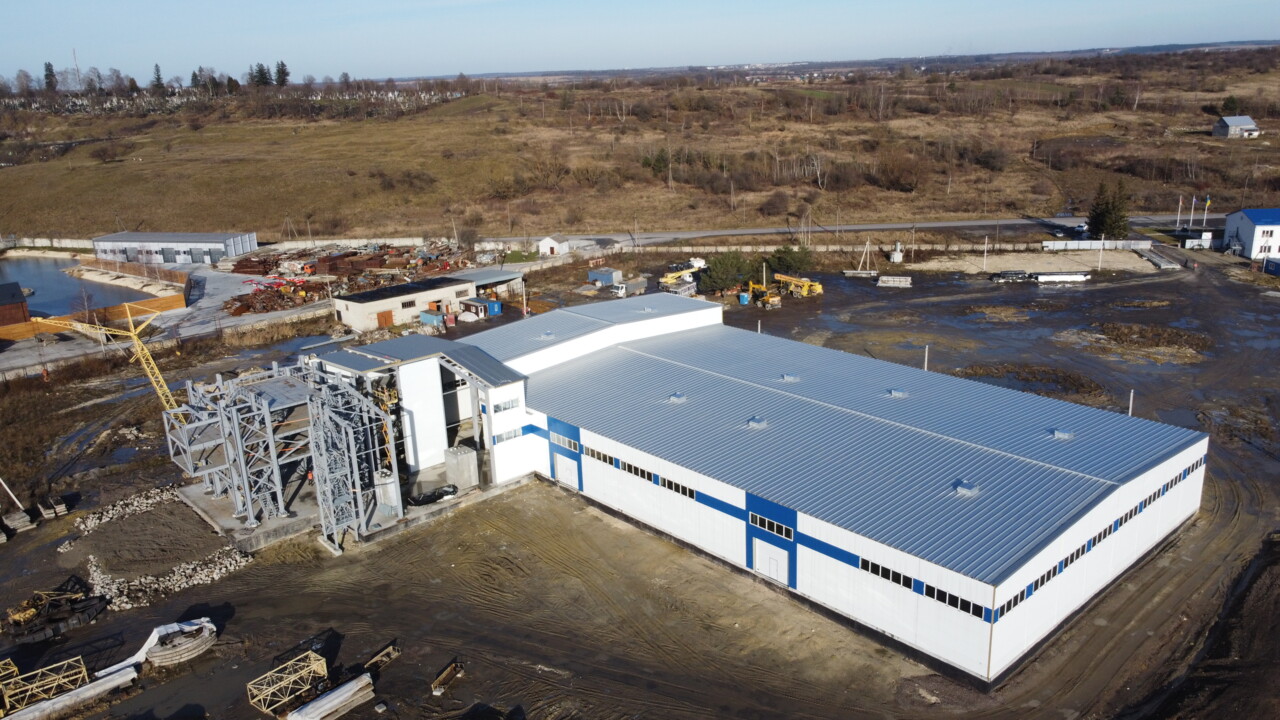
Picture rights: FIXIT TM Holding GmbH, Freising
Project example: Semiconductor production in Malaysia
Infineon Technologies AG in Neubiberg is among the leading global suppliers of semiconductor solutions for efficient energy management, intelligent mobility as well as secure wireless communications. With some 56,200 employees, the company generated turnover of more than 14 billion euros in the business year 2022.
Infineon Technologies AG is strengthening its leading position on the world market and the resilience of its supply chains with an investment of over 2 billion euros in a third module in Kulim in Malaysia by expanding its production capacity in the field of compound semiconductors. Renewable energies and electromobility are the main drivers of strong and sustainable growth in demand for such semiconductors.
At full capacity, the third module in Kulim will create 900 high-quality jobs. The work on construction of the new factory, expected to take some two years, began in summer of 2022. The first manufactured wafers will come off the production line in the second half of 2024. The Federal Government is supporting this project with investment guarantees.
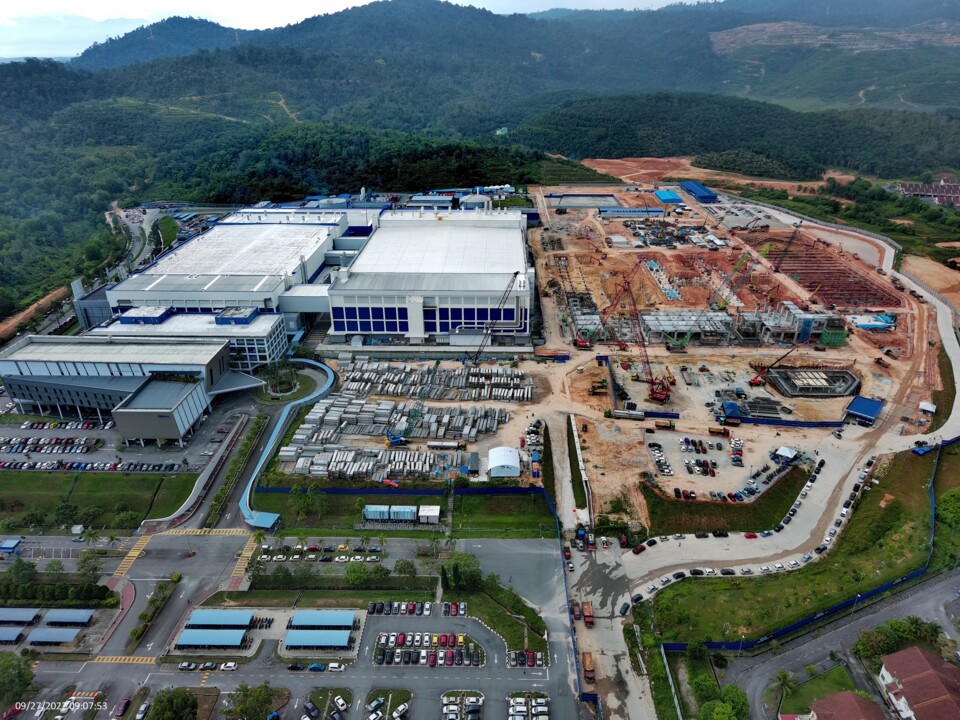
Picture rights: Infineon Technologies AG, Neubiberg
Project example: Heinz-Glas China
The globally operating HEINZ-GLAS Group, headquartered in Kleintettau, is investing in the future by building a new branch in China.
Following the groundbreaking on March 8, 2021, construction of the furnace began on August 10, 2021, at the newly developed production site in Changzhou, Jiangsu Province. High-quality glass is expected to start rolling off the cooling conveyor by March 20, 2022. Specifically, three production lines are planned around a glass melting furnace with a melting capacity of 60 tons per day. Preparations are also underway for the addition of a fourth and fifth production line, an increase in melting capacity, and the establishment of a glass product finishing section. The total investment amounts to around 34 million euros.
By the end of 2021, the HEINZ-GLAS Group employed approximately 3,250 people, with nearly 1,500 in Germany. The Heinz family’s glassmaking tradition dates back to 1523, and the HEINZ-GLAS company itself was founded in 1622. In 2021, the family-owned company, now in its 13th generation, celebrated its 400th anniversary, together with the village of Piesau, where the first glassworks and the village were founded in 1622.
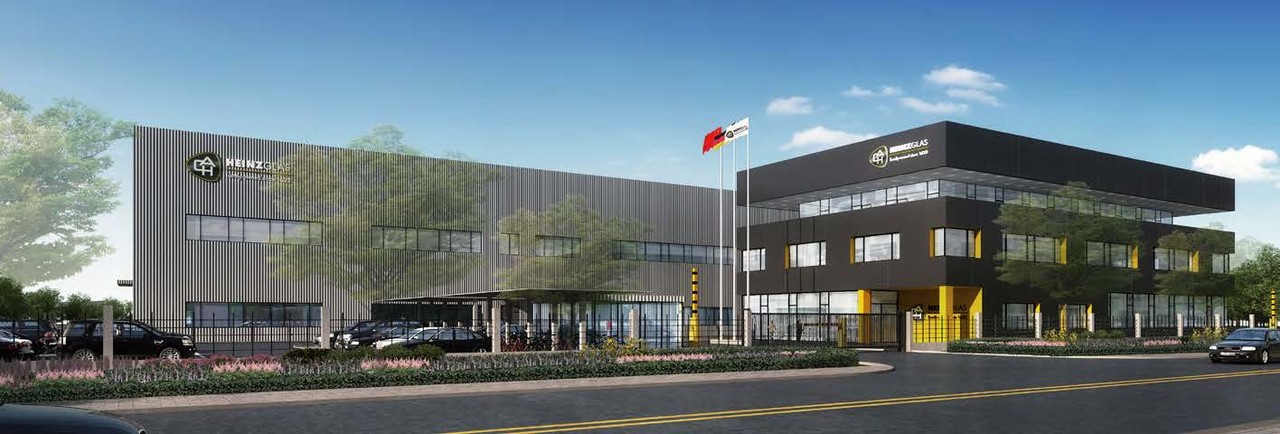
Picture rights: Heinz-Glas International GmbH & Co. KGaA, Tettau-Kleintettau
Project example: Knauf looks back on successful investments in Egypt
The Knauf Group, headquartered in Iphofen, is one of the world's leading manufacturers of modern insulation materials, drywall systems, plasters and accessories, thermal insulation composite systems, paints, self-leveling screeds, flooring systems, as well as construction machinery and tools. Knauf operates on five continents in more than 90 countries with over 250 production and sales locations. In 2019, the company generated a turnover of 10 billion euros with approximately 35,000 employees. Knauf began its first business activities in Egypt with a representation in 1998.
In 2010, Knauf Egypt began constructing a facility for the production of boards, gypsum products, and metal profiles with an investment budget of over 40 million euros. Knauf Egypt is committed to supplying the local market and neighboring countries with Knauf products of Egyptian origin, produced according to European standards. In response to growing demand in the region, Knauf decided in 2016 to double the capacity of the production site in the Ataqa industrial zone in Suez, which had opened two years earlier, to 30 million m². Knauf Egypt made a significant contribution to financing this project and, through its investments, has since created over 250 jobs. The German government secures this project with investment guarantees against political risks.
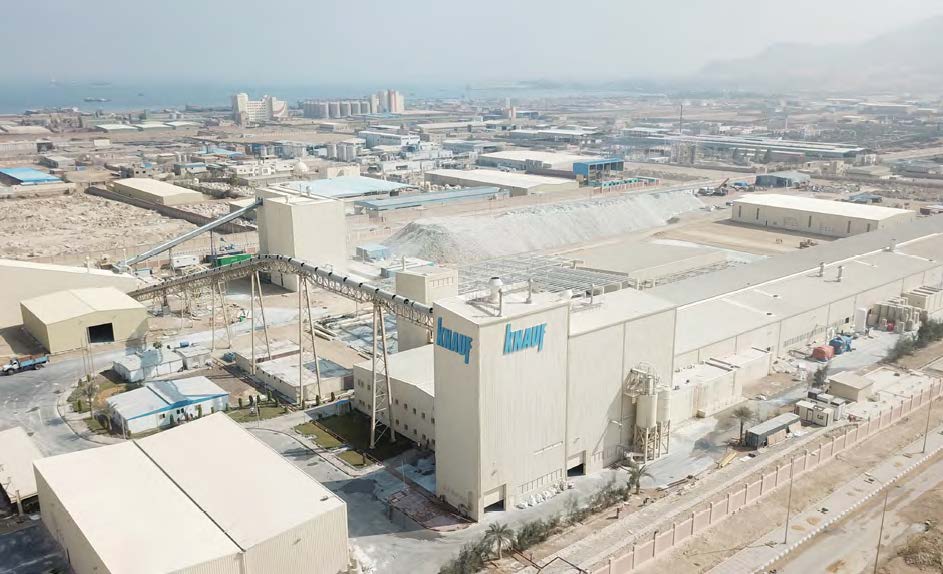
Picture rights: KNAUF INTERNATIONAL GmbH, Iphofen
Project example: A dust recycling plant for China
Befesa is a company in the environmental services sector specializing in the recycling of residue materials from the steel and aluminium industries. Through reprocessing of hazardous residues and reusable materials, Befesa helps to reduce the consumption of natural resources in the metal industry. Since China is the biggest producer of steel worldwide, this market has a huge strategic significance for Befesa. With two new industrial dust recycling plants in Henan and Jiangsu Provinces, the group has gained access to this very promising prospective market. Both projects are secured against political risks by means of Federal Government guarantees.
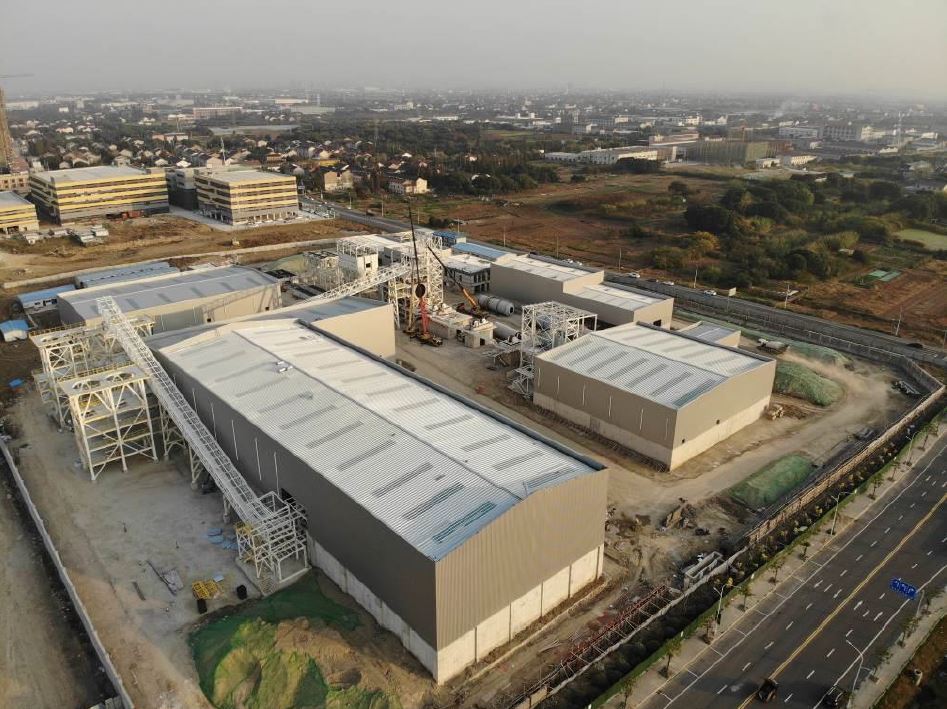
Picture rights: Befesa Management Services GmbH, Ratingen
Project example: Solar storage for Zambia
Rivonia is a Zambian food producer. In order to make Rivonia independent from the unreliable power grid and from expensive and climate-damaging diesel generators, a solution is being implemented by the company GRIPS. GRIPS is making an off-grid solar storage system available under a leasing contract. In this way the factory can produce food self-sufficiently and in a climate-friendly way independently of the power grid. For this, the customer Rivonia only pays a royalty. GRIPS develops and finances customized renewable energy solutions for companies, thus helping to support growth in up-and-coming African markets.
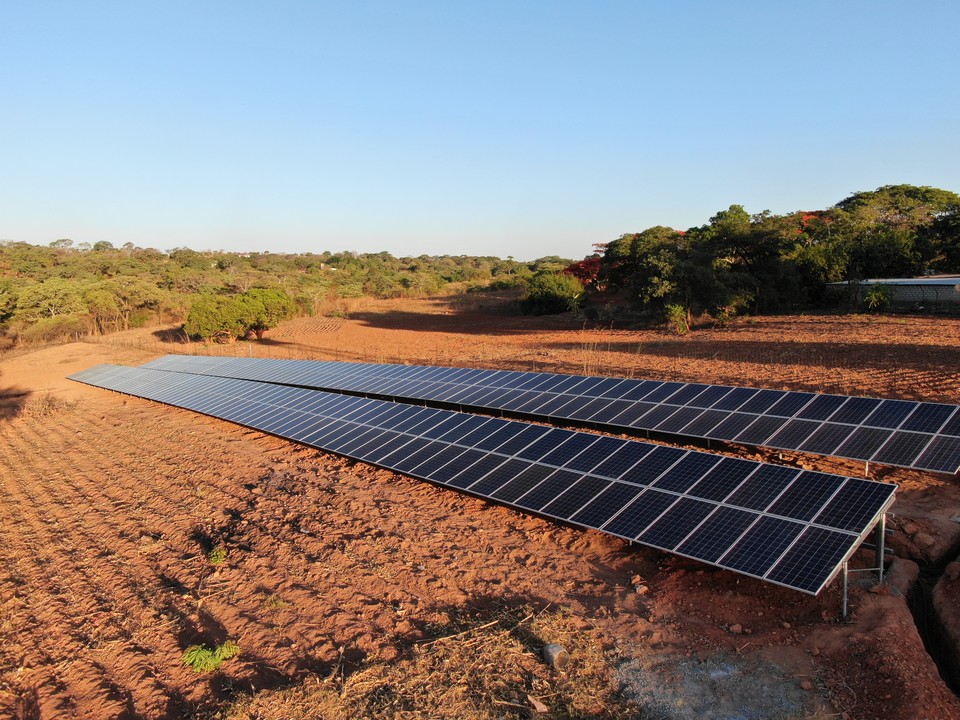
Picture rights: GripsEnergy GmbH, Berlin
Project example: Sustainable resources for Vietnam
Since 2019, the waterworks Song Duong 1b built by the Aone Deutschland AG (Aone) as a turnkey project for the local water supplier AquaOne Cooperation has been supplying the 1.5 million inhabitants of the Vietnamese capital Hanoi with clean drinking water. In a second project stage, Aone is building, financing and operating a 2.7-megawatt photovoltaic plant on the roof of the waterworks. The plant was commissioned into operation in December 2020. Aone has for years been relying on digitization in its international cooperation – an invaluable know-how asset during a pandemic. The cover for the photovoltaic plant under an investment guarantee has made a major contribution to financing the project.
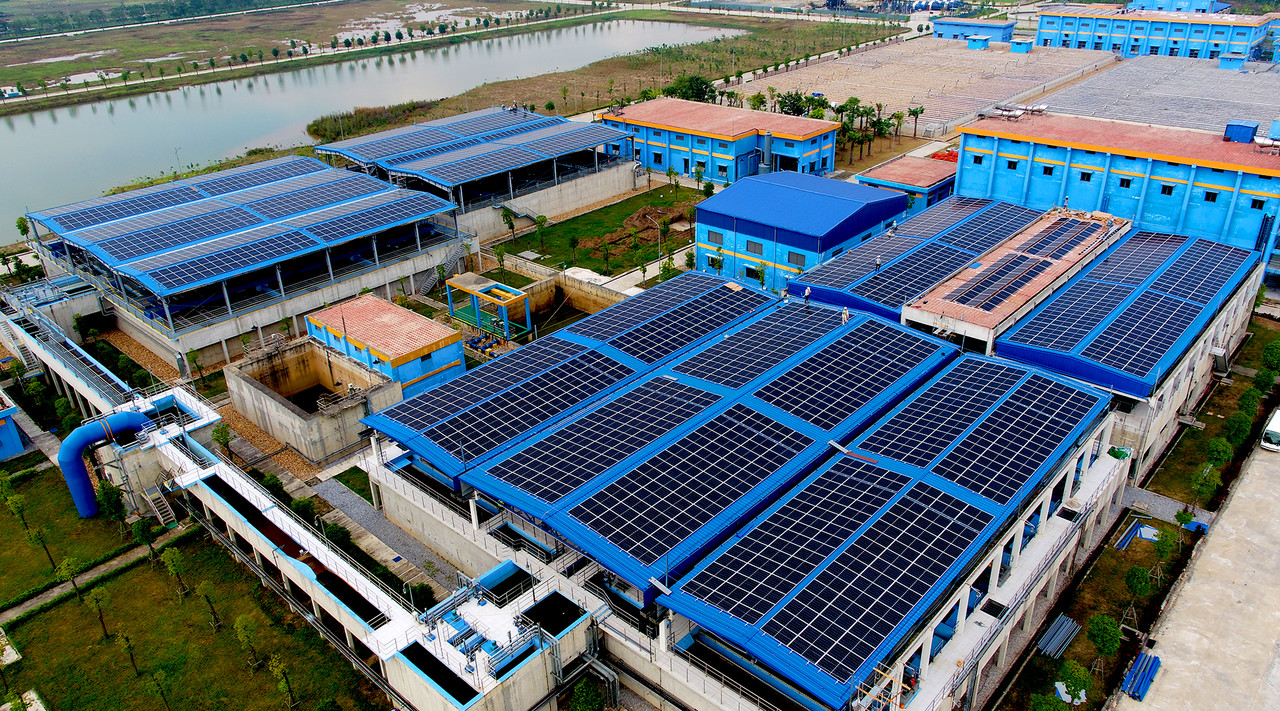
Picture rights: Aone Deutschland AG, Leipzig
Project example: Knauf sets up its first production facility for gypsum plasterboard on the Philippines
The Knauf Group, with its head office in Iphofen is among the leading manufacturers of building materials and building systems worldwide. Knauf is present on all five continents in more than 86 countries and over 220 production and sales localities. In 2016 the group generated turnover of 6.5 billion euros with around 27,400 employees. The Philippine market for building materials is among the fastest growing anywhere in the world. Knauf will invest 40 million euros in the first local production plant for plasterboard in Batangas Province. Production will commence in 2018 with an annual capacity of 16 million m², thus creating some 100 jobs. The Federal Government is covering this project with an investment guarantee against political risks.
Production on the Philippines will create around 100 jobs.
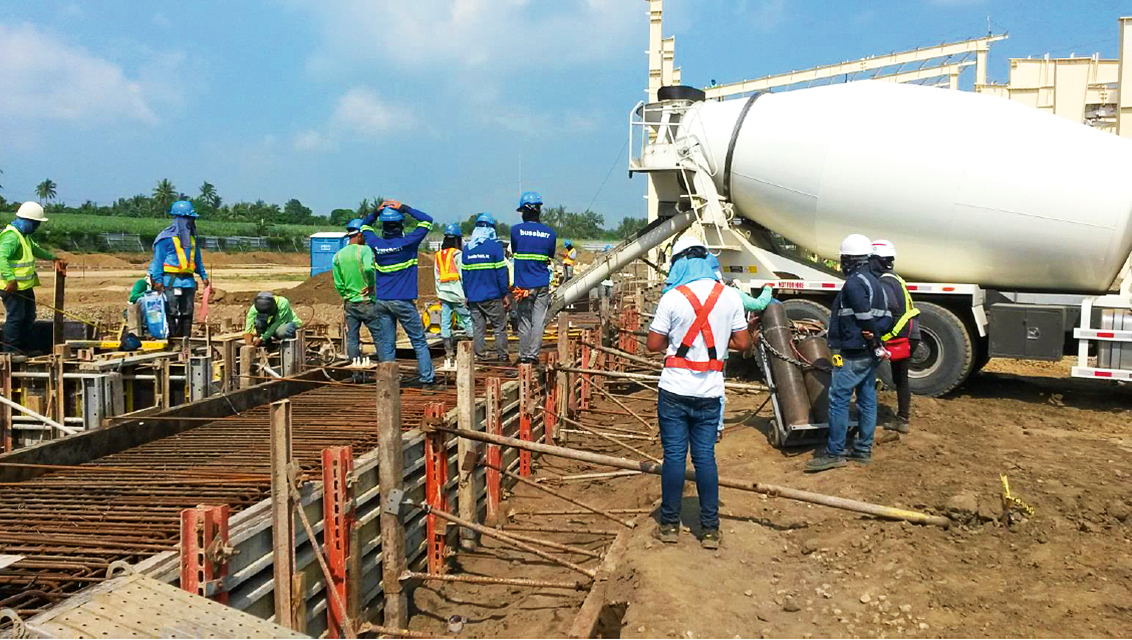
Picture rights: Knauf Engineering GmbH, Iphofen
Project example: Africa GreenTec - Electricity is the beginning of of everything
Electricity is the first and most important step for sustainable development in rural regions. Since its founding, Africa GreenTec Asset GmbH has set the goal of addressing and implementing sustainable development through mobile solar power plants.
The modular Solartainer® solar power plants developed by Africa GreenTec can provide clean, silent electricity to up to 4,000 people, 40 businesses, and 10 community facilities, without CO2 or pollutant emissions. This also sustainably reduces the urge to migrate from rural areas.
In 2017, Africa GreenTec established a project company in Mali with the goal of operating 50 mobile solar plants and decentralized power grids to supply electricity to people in rural areas. By 2018, 20 Solartainers had already been built and tested. In Mali alone, there are approximately 12,000 villages that are too remote, too poor, or otherwise uninteresting for the national energy provider. Across the entire African continent, the number of unelectrified villages is estimated to be over 1.25 million.
To safeguard against unpredictable political risks, the German government has provided guarantees for Africa GreenTec's investments in Mali.
In 2018, 20 Solartainers had already been built and tested.
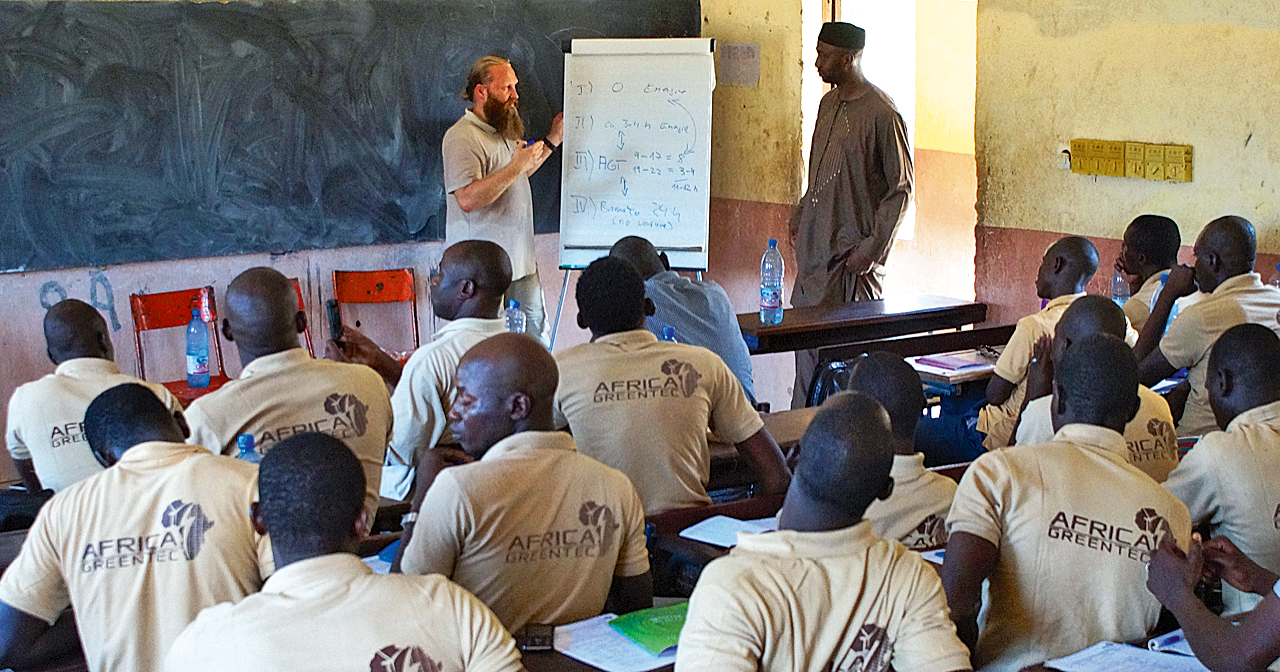
Picture rights: Africa GreenTec Asset GmbH, Kleinostheim
Project example: EUROGATE invests in a Brazilian provider of intermodal container transport solutions
EUROGATE is the leading shipping line-independent container terminal operator in Europe, handling more than 14.8 million TEUs (Twenty-foot Equivalent Units, the standard unit of measurement for container ship capacity and port handling volumes) at eleven terminal locations in 2014. Together with its sister company Contship Italia, EUROGATE operates sea terminals in the North Sea, the Mediterranean, and the Atlantic.
In 2015, EUROGATE acquired a stake in CONTRAIL Logistica S.A., a provider of intermodal transport solutions in the hinterland of Santos, in the state of São Paulo. With over 3.6 million TEUs, Santos is the largest container port in Latin America. CONTRAIL will develop a new logistics system to transport containers by rail. The plan is to expand an intermodal network that integrates its own inland terminals along the Santos – São Paulo – Campinas and São José dos Campos corridor. Over 30% of Brazil's gross domestic product is generated in the state of São Paulo.
In Europe, EUROGATE has proven its expertise in building intermodal transport networks through its German and Italian companies and is now bringing this knowledge to Brazil. Many shipping lines include Santos as a port of call in their routes and require efficient and reliable connections to the hinterland, including São Paulo and further to Campinas. EUROGATE's participation will further strengthen CONTRAIL, particularly in terms of operational expertise and relationships with global players in the container market.
For its investment in CONTRAIL, EUROGATE has received a federal guarantee for direct investments. This guarantee, which provides protection against political risks, ensures that EUROGATE can bring its skills and experience to Brazil while preserving and expanding jobs both in Brazil and in Germany.
CONTRAIL will develop a new logistics system to transport containers by rail.
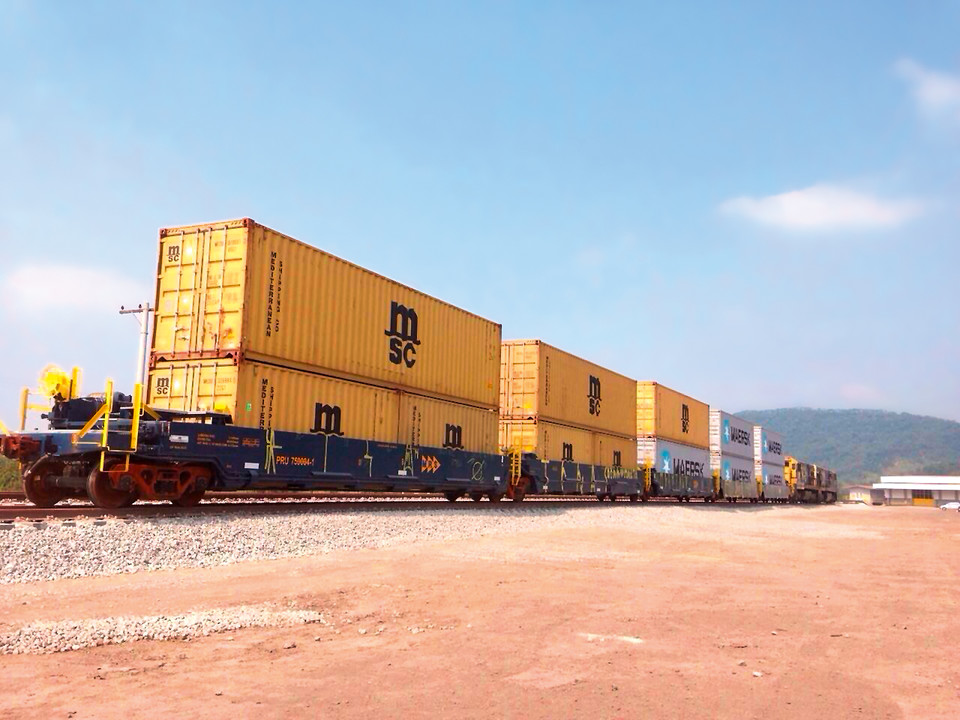
Picture rights: EUROGATE International GmbH, Hamburg
